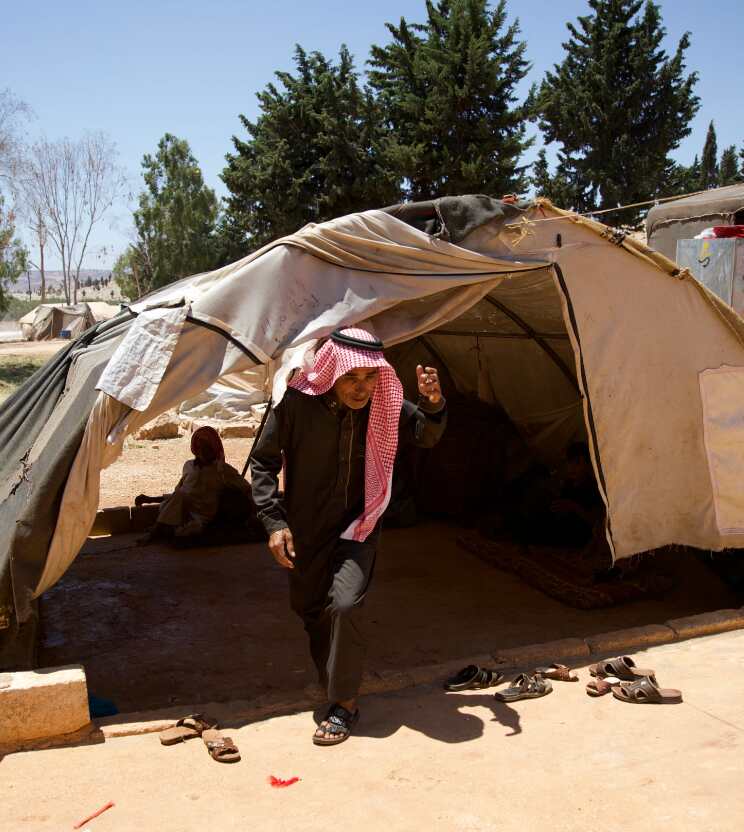Russia’s Veto Starves Syrian Residents of Vital Cross-Border Aid
Russia, a key ally of the Syrian government, wielded its veto power to block the renewal of an essential UN aid operation that delivers food, water, shelter, healthcare, and education to over four million people.
Russia, a key ally of the Syrian government, wielded its veto power to block the renewal of an essential UN aid operation that delivers food, water, shelter, healthcare, and education to over four million people.
The UN remains hopeful that the mechanism will be renewed, with a new resolution being put to the Security Council for a vote. The United Nations Security Council's failure to pass a resolution that would extend vital cross-border aid to the opposition-held territory of Idlib, Syria, has left the region's residents in dire straits.
This heartless act of aggression is further proof that the politicised Security Council should not be the one making vital humanitarian decisions. The mechanism established by the UN in 2014 to deliver aid to Syria without government approval was initially supported by four border crossings, but after years of pressure, mainly from Moscow, only the Bab al-Hawa crossing remains operational.
All the while, authorisation for cross-border aid has been reduced to six months, and the current resolution expired on Monday, raising the specter of widespread starvation unless a new resolution is adopted.
The Russian veto is part of a long-standing strategy employed by the Syrian regime, with the assistance of Russia, to suppress the Syrian people. Mohammed Khalif, a 45-year-old father of seven children, has been displaced in the war and now lives in Al-Hweijah Camp in northern Idlib.
He said, “Not only did Russia displace us from our land through the military operation it conducted alongside the Syrian President Bashar al-Assad regime and the Iranian militias five years ago in our region, but today it continues its atrocities through its power in the Security Council by halting the decision to allow humanitarian aid into our area.”
Aisha Eid, a 54-year-old mother of two who was displaced from the town of Al-Tah in the southern countryside of Idlib four years ago, now lives in a camp in northern Idlib. She said, “After losing my husband five years ago due to Russian air strikes, today Russia fights us through the veto, attempting to starve us to death.”
She and her children must now rely on meager wages from working on farms, and the prospect of no aid has left them without hope. The earthquakes that hit Syria and Turkey in February highlighted how critical the Bab al-Hawa crossing is for aid delivery and lifesaving efforts, and the inadequacy of the UN Security Council resolution in the face of the emergency.
Hiba Zayadin, senior researcher at Human Rights Watch (HRW), said, “The consequences of shutting down this lifeline are grave for the over four million people that rely on it. It puts at grave risk their rights to food, water, shelter, healthcare and education.”
Another reason for the Russian veto appears to be the various political developments that have provoked it, including the approval of Sweden's entry into NATO, the handing over of Azov Battalion members to Ukraine, Turkey’s demand for Ukraine’s entry into NATO, and the reaffirmation that the Crimean Peninsula is Ukrainian territory.
Additionally, there has been an elevation in security coordination between Turkey and the United States regarding the security situation in Syria.
Political researcher Abbas Sharifa said, “Russia seeks a political price for its approval regarding the Syrian file, which includes pushing for the acceleration of early recovery projects in areas under the control of the Syrian regime and pushing for the entry of all aid through government-controlled lines, to enhance the regime’s utilisation of this assistance in addressing the escalating economic crisis it faces.”
The UN remains hopeful that the mechanism will be renewed, with a new resolution being put to the Security Council for a vote. However, until then, the residents of Idlib, Syria will have to face the devastating consequences of Russia's veto, which has deprived them of essential humanitarian aid.




